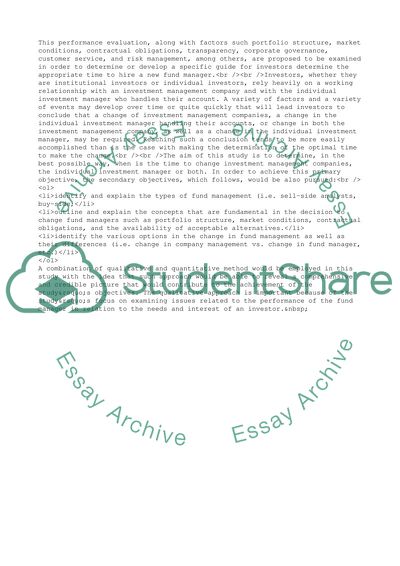Cite this document
(When to Say Good Bye to a Fund Manager Research Proposal, n.d.)
When to Say Good Bye to a Fund Manager Research Proposal. https://studentshare.org/management/1735994-when-to-say-good-bye-to-a-fund-manager
When to Say Good Bye to a Fund Manager Research Proposal. https://studentshare.org/management/1735994-when-to-say-good-bye-to-a-fund-manager
(When to Say Good Bye to a Fund Manager Research Proposal)
When to Say Good Bye to a Fund Manager Research Proposal. https://studentshare.org/management/1735994-when-to-say-good-bye-to-a-fund-manager.
When to Say Good Bye to a Fund Manager Research Proposal. https://studentshare.org/management/1735994-when-to-say-good-bye-to-a-fund-manager.
“When to Say Good Bye to a Fund Manager Research Proposal”. https://studentshare.org/management/1735994-when-to-say-good-bye-to-a-fund-manager.


